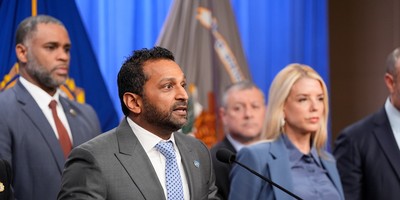There is significant disagreement among Republican Governors opposed to ObamaCare on whether to create a state health insurance exchange or in the absence of doing so, allow the federal government to create one for them as the law dictates.
According to President Obama, this debate is unnecessary given that his plan is a conservative one. In an interview with NBC’s Today Show, Obama wryly noted that “a lot of the ideas in terms of the exchange, just being able to pool and improve the purchasing power of individuals in the insurance market…originated from the Heritage Foundation”, perhaps the most prominent conservative think tank.
He is right that exchanges were originally a conservative idea that policy experts promoted as a market-based mechanism to advance defined contribution financing to health insurance, personal ownership and portability of plans, and a one-stop place to shop.
However, the folks at Heritage quickly rebuffed the President’s comparison for the same reasons many Governors are rebuffing the exchanges: ObamaCare’s imposition of significant federal control over them and thus squashing many of their desired benefits.
The law mandates that every plan offered on the exchange must include a set of minimum essential benefits, as defined by the unelected Empress of ObamaCare, Health and Human Services Secretary Kathleen Sebelius. This requirement necessarily restricts the options available to consumers and will force many to buy coverage for services they would rather not pay for.
Recommended
The law also sets in motion a process whereby insurers have to justify rate increases Sebelius deems unreasonable. If states don’t reject premium increases as the Secretary demands, then she can step in, refuse to certify their exchange, and open federally-run one in its place.
Further, the Congressional Research Service, the non-partisan research arm of the Congress, has confirmed that Sebelius has the ultimate power to reject all private plans from exchanges and only allow for the government-run plans offered by the Office of Personnel and Management, thereby transforming the exchanges into an effective public option.
Whether she will go this far remains to be seen. Either way it is clear that the Obama Administration is using exchanges as a means to increasing the size and scope of government.
Even former Democratic Governor of Tennessee Phil Bredesen has gone after his own party for their overreach. As he has courageously pointed out, ObamaCare creates a system where, for a $2k fine, it is much cheaper for employers, including a state government such as the one he ran, to dump their employees on the exchange than continue to provide them coverage.
Importantly, there would be no issue with such a robust exchange system if the federal government didn’t have its dirty paws all over it.
But perhaps the biggest concern for states is the costs associated with the exchanges. They are unsure of the degree of the administrative costs to be incurred from setting up an exchange and operating it. Also, there is no guarantee that the federal government is going to reimburse the state for these expenses.
At a time of yearly record deficits, why would a state want to take on such an unknown risk? Yet, many Governors are moving forward with creating an exchange.
One reason for doing so, particularly for chief executives governing political “swing states”, is that they don’t want to appear as obstructionists that have no interest in advancing reform. Another is out of fear for the possibility of subjecting their citizens to a completely federally run exchange. Further, some states, such as Utah, believe they might be able to pressure Sebelius to accept their free-market exchange.
This effort is already under way. Earlier this month, Indiana Governor Mitch Daniels organized a letter with 20 other Governors calling for a laissez-faire approach to the exchanges and making a defined list of demands to get to this point.
However, as President Obama loves to say, the choice between creating or not creating an exchange is really just a false choice that doesn’t have to be made. The answer for Governors in both camps lies elsewhere and for once, appropriately in the Congress.
House Speaker John Boehner's Republican majority is now the "keeper of the purse strings" and has the power to withhold the funding necessary to implement the exchanges.
Specifically, Republicans must refuse to appropriate funds for the state implementation grants and most significantly, attach riders to the relevant spending bills that make it illegal for the federal government to implement or oversee the exchanges.
If we can stop the exchanges in ObamaCare we can significantly undermine the fundamental structure of the law and relieve states of their current, unwelcome dilemma.

























Join the conversation as a VIP Member